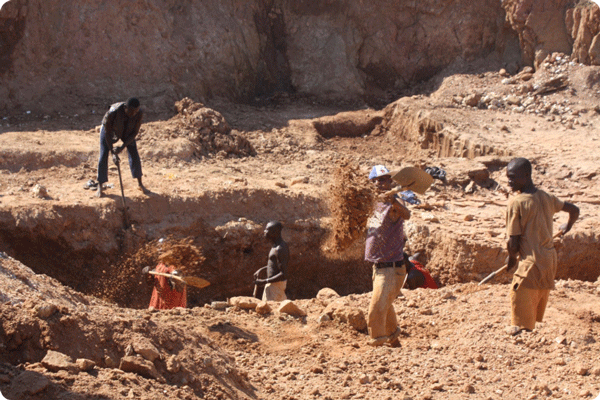
TIME is running out for the Mines and Minerals Amendment Bill to be enacted into law as Parliament got into its last session last week ahead of next year’s general elections.
BY FIDELITY MHLANGA
The proposed amendments are meant to accelerate the growth of the sector, which is one of the country’s largest foreign currency earners.
Since 2007, government has made various attempts to amend the Mines and Minerals Act, a primary piece of legislation that regulates the exploitation and management of mineral resources in Zimbabwe.
The Mines and Minerals Amendment Bill was gazetted on August 12 last year and was referred to the parliamentary portfolio committee in May this year.
According to Parliament’s Bill status report, the Mines and Minerals Amendment Bill was now at the second reading.
Under the current session, it is anticipated to go through various stages, which include committee stage, report stage, third reading, transmission to and passage in the other house, disagreement between the Senate and the National Assembly and the president to make it law.
The Constitution provides mechanisms for the resolution of disagreements between the two Houses on Bills.
- Chamisa under fire over US$120K donation
- Mavhunga puts DeMbare into Chibuku quarterfinals
- Pension funds bet on Cabora Bassa oilfields
- Councils defy govt fire tender directive
Keep Reading
Paragraph 3 of Schedule 4 to the Constitution states that if a disagreement between the whole house was not resolved by the two houses within 90 days, the Bill may be presented to the president for assent in the form in which it was passed in the National Assembly.
While opening the last session of the eighth Parliament last week, President Robert Mugabe said the sustained growth in the mining sector’s contribution to the country’s gross domestic product hinged on the full implementation of the beneficiation and value-addition programme.
He called for the speedy finalisation of the Mines and Minerals Amendment Bill and the Mineral Exploration and Marketing Corporation Bill.
Mugabe said the Gold Trade Act and the Precious Stones Trade Act will be tabled for consideration during this session to curb leakages.
However, Mines and Mining Development minister Walter Chidakwa is said to be pushing hard to see this Bill signed into law during his tenure.
Mines and Energy Parliamentary portfolio committee chairperson Daniel Shumba said he could not guarantee the passage of the Bill into law.
“I can’t say [it will sail through this session]. What if the Bill is rejected by all parliamentarians? I cannot speak on behalf of my colleagues,” he said.
“Every parliamentarian applies their mind. We will hear from them as we will be debating on whether it’s good or bad.
“I cannot answer on behalf of parliamentarians. The minister has been very progressive and the outcome is a shared responsibility. It’s all about having the best law.”
“The Bill has taken the same processes as other bills. We went throughout the whole country to get the views of various stakeholders.
“After stakeholders raised issues, we will highlight them for consideration.
“We only opened Parliament last week and next week the committees will be sitting and the bill will be reintroduced in parliament.”
Chamber of Mines president Batsirai Manhando said the enactment of the Bill was long overdue, adding that he was optimistic it would be passed into law during the current session.
“We have given our comments and I think the bill is going through the various committees and making additions, that’s why it has delayed,” he said.
“We are optimistic it will be enacted into law because it is long overdue.
“We have been working on this for a long time but you never know how long it will take with the parliamentary processes.
“We will continue with the way we have been doing business, though a new Act would make sure that a lot of other areas become easy with the way we are managing. But we will continue. The industry will not stop,” he said.
According to a report by the Zimbabwe Environmental Law Association (Zela), undertaking reforms of the mining sector through the amendment was evidence that there was a realisation that the mining sector, despite its vast potential, was not performing optimally.
Zela said the current mining legislation was the Achilles’ heel contributing to Zimbabwe’s failure to leverage on its mineral resources to effectively contribute to economic development.
Zimbabwe’s mining sector is anticipated to rake in $3 billion in export earnings from $2 billion realised last year.
Economist Clemence Machadu said parliament had a history of not implementing Mugabe’s directives as was the case with the Indigenisation law, which was still hanging in the balance 18 months down the line.
“For a decade, Parliament has been trying to make amendments to the antediluvian Mines and Minerals Act to no avail,” he said. “Is it going to succeed in this particular session? Well, since this time around President Mugabe appealed for the expeditious finalisation of the Bills, I would say yes, there is likely going to be finality.”











